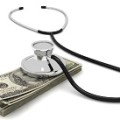Any serious injury is bound to have some financial consequences, no matter how well prepared you are. Workplace injuries are no different. Aside from having to pay medical bills, you may also be unable to do your job for a while, which could lead to a loss of income. Dealing with an injury is stressful enough, and it’s made much worse by the fact that so many people have financial stress on top of that. This post is here to help you gain a bit more insight into managing your finances after a workplace injury.
Worker’s compensation
While an injury at work is always a bad thing, there may be one benefit: worker’s compensation. Since most companies don’t want to be held responsible for an employee’s injury, as it could damage their reputation, they often decide to offer a monetary settlement. Depending on your situation and the nature of your injury, this settlement could cover a huge portion of your expenses, and even if it doesn’t cover everything, every little bit helps. There are, of course, certain factors that need to be taken into consideration. For example, are you still eligible for worker’s compensation if you got injured on a break? You can click here to find out.
Medical insurance
If you have medical insurance or some other form of medical aid, it is important to put in a claim as soon as possible, and also include any relevant evidence or documentation your insurance company may require. Some injuries are only covered by private healthcare, meaning without medical insurance, you may struggle to get the help you need. However, there may still be options for those who don’t have health insurance, so it’s important to investigate all possible avenues before you make serious decisions about treating your injuries.
Use your leave
All employees have sick leave, but often, a workplace injury may require more time off, which means it is possible that you can use up all of your sick leave. If that is the case, what happens next? You should try and use any other types of paid leave that you can, such as your annual leave. If possible, you should avoid using unpaid leave, as this will mean a lower income during an already financially straining time. How much paid leave you have will depend on where you live, as well as how much of your leave you used prior to your injury.
Dip into your savings
Hopefully, you have an emergency fund or other type of savings account set up. Ideally, you would not need to dip into this after an injury, but if you have no other alternative, you will need to. Of course, you need to only do this if you have considered all of your other options, and you should try to use as little of your savings as possible. You don’t want to come out of this with no savings. That being said, your emergency savings are there precisely for emergencies, so if you need to use them, you should.









